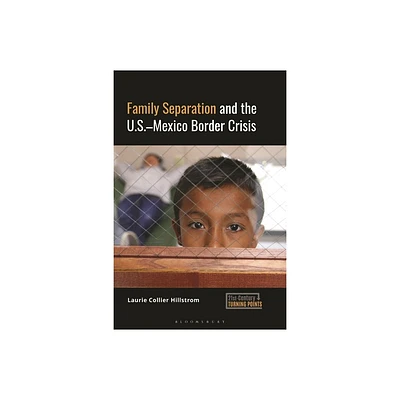Home
Resacralizing the Other at US-Mexico Border: A Borderland Hermeneutic
Loading Inventory...
Barnes and Noble
Resacralizing the Other at US-Mexico Border: A Borderland Hermeneutic
Current price: $54.99


Barnes and Noble
Resacralizing the Other at US-Mexico Border: A Borderland Hermeneutic
Current price: $54.99
Loading Inventory...
Size: Paperback
*Product Information may vary - to confirm product availability, pricing, and additional information please contact Barnes and Noble
This book focuses on the themes of border violence; racial criminalization; competing hermeneutics of the sacred; and State-sponsored modes of desacralizing black and brown-bodied people, all in the context of the US-Mexico borderlands. It provides a much-needed substantive response to the State’s use of sacrilization to justify its acts of violence and offers new ways of theologizing the acceptance of the "other" in its place.
As a counter-hermeneutic of the sacred, the ultimate objective of the book is to offer an alternative epistemological, theoretical and practical framework that resacralizes the other. Rejecting the State-driven agenda of othering border-crossers, it follows Gloria Anzaldúa’s healing move to the Sacred Other and creates a new hermeneutic of the sacred at the borderlands. One that resacralizes those deemed by the State as the non-sacred human other anywhere in the world.
This is an important and topical book that addresses one of the key issues of our time. As such, it will be of keen interest to any scholar of Religious Studies and Liberation Theology as well as religion’s interaction with migration, race and contemporary politics.
As a counter-hermeneutic of the sacred, the ultimate objective of the book is to offer an alternative epistemological, theoretical and practical framework that resacralizes the other. Rejecting the State-driven agenda of othering border-crossers, it follows Gloria Anzaldúa’s healing move to the Sacred Other and creates a new hermeneutic of the sacred at the borderlands. One that resacralizes those deemed by the State as the non-sacred human other anywhere in the world.
This is an important and topical book that addresses one of the key issues of our time. As such, it will be of keen interest to any scholar of Religious Studies and Liberation Theology as well as religion’s interaction with migration, race and contemporary politics.


















